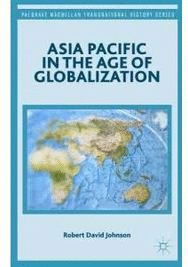12-2
Dec. 2: The Collapse of European Communism
- The European Revolutions (read each of the six countries)
- “The Unique Experience of Romania“
- “Catholic Church in Poland“
- “Solidarity Comes to Power in Poland“
Map: collapse of the USSR
Ronald Reagan, “Remarks on East-West Relations at the Brandenburg Gate in West Berlin”
June 12, 1987
In West Germany and here in Berlin, there took place an economic miracle, the Wirtschaftswunder. Adenauer, Erhard, Reuter, and other leaders understood the practical importance of liberty–that just as truth can flourish only when the journalist is given freedom of speech, so prosperity can come about only when the farmer and businessman enjoy economic freedom. The German leaders reduced tariffs, expanded free trade, lowered taxes. From 1950 to 1960 alone, the standard of living in West Germany and Berlin doubled.
Where four decades ago there was rubble, today in West Berlin there is the greatest industrial output of any city in Germany-busy office blocks, fine homes and apartments, proud avenues, and the spreading lawns of park land. Where a city’s culture seemed to have been destroyed, today there are two great universities, orchestras and an opera, countless theaters, and museums. Where there was want, today there’s abundance–food, clothing, automobiles-the wonderful goods of the Ku’damm. From devastation, from utter ruin, you Berliners have, in freedom, rebuilt a city that once again ranks as one of the greatest on Earth. The Soviets may have had other plans. But, my friends, there were a few things the Soviets didn’t count on Berliner herz, Berliner humor, ja, und Berliner schnauze. [Berliner heart, Berliner humor, yes, and a Berliner schnauze.] [Laughter]
In the 1950’s, Khrushchev predicted: “We will bury you.” But in the West today, we see a free world that has achieved a level of prosperity and well-being unprecedented in all human history. In the Communist world, we see failure, technological backwardness, declining standards of health, even want of the most basic kind-too little food. Even today, the Soviet Union still cannot feed itself. After these four decades, then, there stands before the entire world one great and inescapable conclusion: Freedom leads to prosperity. Freedom replaces the ancient hatreds among the nations with comity and peace. Freedom is the victor.
And now the Soviets themselves may, in a limited way, be coming to understand the importance of freedom. We hear much from Moscow about a new policy of reform and openness. Some political prisoners have been released. Certain foreign news broadcasts are no longer being jammed. Some economic enterprises have been permitted to operate with greater freedom from state control. Are these the beginnings of profound changes in the Soviet state? Or are they token gestures, intended to raise false hopes in the West, or to strengthen the Soviet system without changing it? We welcome change and openness; for we believe that freedom and security go together, that the advance of human liberty can only strengthen the cause of world peace.
There is one sign the Soviets can make that would be unmistakable, that would advance dramatically the cause of freedom and peace. General Secretary Gorbachev, if you seek peace, if you seek prosperity for the Soviet Union and Eastern Europe, if you seek liberalization: Come here to this gate! Mr. Gorbachev, open this gate! Mr. Gorbachev, tear down this wall!
————————————————-
Memorandum of Conversation Between Egon Krenz, Secretary General of the Socialist Unity Party and Mikhail S. Gorbachev, 1989
Comrade Gorbachev recommended not to be deterred by the complicated problems. From his own experience he knew that comrades were at times depressed because even after several years of perestroika in the Soviet Union there were still such great problems to resolve. He then always told them that the Party itself had wanted perestroika. It had involved the mass of people in politics. If now some processes were not running as expected, if there were stormy and emotionally charged arguments, then one would had to cope with that, too, and not become afraid of one’s own people.
He did not mean to say that perestroika had been fully achieved in the Soviet Union. The horse was saddled but the ride was not over. One could still be thrown off. On the other hand, much experience had already been gained, which had great significance. Now the phase of intensified work for the continuation of perestroika was beginning in the Soviet Union.
…
Comrade Gorbachev explained that it was now necessary to revive creative Marxism, socialism in a Leninist way, the humanistic and democratic socialism in which man really felt that this was his society and not an elite society. This process was not easy to implement. Of this he had become aware during his visit to Cuba. There had been a tense atmosphere initially. He himself, however, had explained that perestroika resulted from the development of the Soviet Union, and was necessary for the solution of Soviet problems. The question of whether socialism in the Soviet Union would succeed or fail was of importance for the entire world, including Cuba….
————————————————–
Map, Eastern Europe in 1980
Map, Eastern Europe in 2000
————————————————————-


